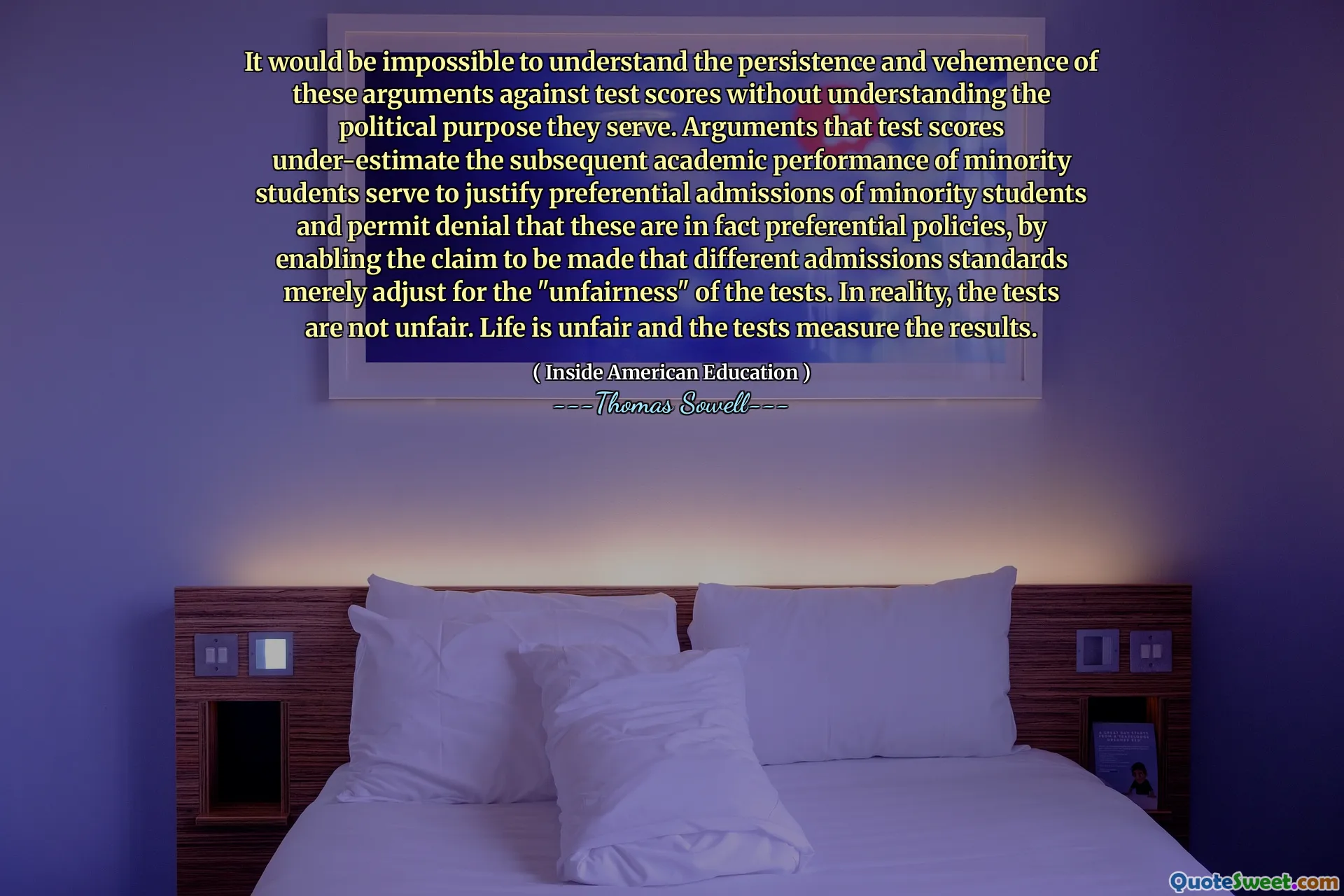
It would be impossible to understand the persistence and vehemence of these arguments against test scores without understanding the political purpose they serve. Arguments that test scores under-estimate the subsequent academic performance of minority students serve to justify preferential admissions of minority students and permit denial that these are in fact preferential policies, by enabling the claim to be made that different admissions standards merely adjust for the "unfairness" of the tests. In reality, the tests are not unfair. Life is unfair and the tests measure the results.
This quote offers a compelling critique of the debates surrounding standardized testing and its role in educational and political systems. Sowell suggests that opposition to test scores often has underlying political motives rather than genuine concerns about fairness or accuracy. The argument that test scores undervalue minority students' academic potential is presented as a way to justify policies that favor these students through preferential admissions. Sowell challenges this narrative by asserting that the tests themselves are fair, emphasizing that life's inherent disparities influence test outcomes, which are natural measures of achievement. This perspective prompts reflection on how societal biases and political agendas shape educational policies and public discourse. It raises the question of whether efforts to modify or dismiss standardized testing are truly aimed at equity or if they're motivated by a desire to obscure the realities of merit and achievement. Recognizing that tests are imperfect but still indicative of performance encourages a focus on how to leverage what they measure rather than dismiss or manipulate the results for political ends. The quote underscores the importance of honesty in addressing educational disparities and suggests that acknowledgment of life's unfairness is crucial for genuine progress. It also invites educators, policymakers, and society at large to critically examine whether interventions are constructed to genuinely address inequality or if they serve more self-serving or political motives.






